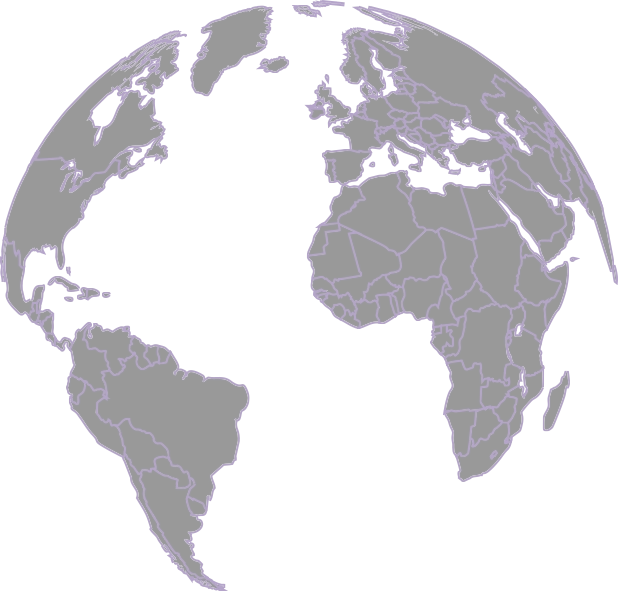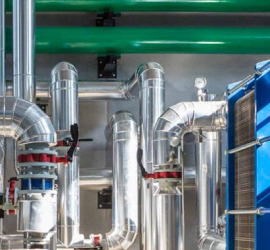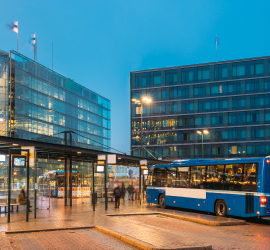- A powerful consortium joins forces to extend the penetration of electric vehicle transport in Europe
- The team involves 30 European companies, research organisations and associations from 9 different countries, and is led by IREC (Spain)
- Massive penetration of electric vehicles requires innovative grid solutions based on charging flexibility
- Smart charging solutions will provide efficient exchange of energy with vehicles, buildings and the grid, allowing for the alleviation of grid constraints alongside fostering renewable penetration
Barcelona, 5th of July 2022. Today, a large consortium formed by 30 European entities gathers in Barcelona to kick-start the FLOW project, aimed at promoting a concept of electric mobility suited for the final user, while providing benefits to the energy system across Europe. The initiative will test, validate and enhance the so-called Vehicle-to-X, where energy will be exchanged among vehicles, buildings and the grid. While the EU Parliament voted to ban new sales of fossil fueled cars by 2035, FLOW will give a solid basis to enhance the upcoming mass penetration of electric vehicle transportation.
According to the International Energy Agency, power demand for electric vehicles is predicted to account for up to 6.5% of European final electricity consumption by 2030, with almost 60 billion € per year in electricity sales. However, the implementation of electric mobility in urban and rural sectors faces several challenges, such as the accessibility to suitable charging infrastructure, or how current users are still used to combustion vehicles. The project will focus on solving the main obstacles faced by drivers during the charging and utilisation of electric vehicles and will provide solutions and alternatives for those challenges.
Cristina Corchero, coordinator of the consortium, explains that “The FLOW project represents a unique opportunity to better understand the potential of energy flexibility when we achieve a massive penetration of electric vehicles”. She highlights that “This will be possible thanks to the joined forces from key players from both the electrical and the mobility sectors”.
The solutions developed within FLOW will provide answers for the upcoming mass deployment of electric vehicles to all actors involved, ranging from power distribution system operators, charging point operators, mobility service providers, infrastructure manufacturers to final users. The main aim is to validate and quantify the benefits associated with electric vehicle charging flexibility, alleviating grid problems, in order to achieve energy decarbonisation while transitioning to a sustainable mobility model.
A total of 5 demonstration sites will be implemented to determine the impact on different energy systems in Czech Republic, Ireland, Italy, Denmark and Spain.
The project is led by the Catalonia Institute for Energy Research (IREC) and is formed by a multidisciplinary team, involving academic partners, small, medium and large enterprises from the energy and mobility sector and large European industry associations.
Multinational energy company Enel is project partner through some of its key subsidiaries. Enel Grids will bring the Group's global experience as the world’s largest operator of private distribution grids by number of end users, also leveraging on the participation of e-distribuzione and e-distribución in the Italian and Spanish demos respectively. Enel Grids will validate system integration at the Enel Flexibility Labs, employing smart grid technologies of its subsidiary Gridspertise. Enel X Way, the Enel Group’s company fully dedicated to electric mobility, together with Endesa X Way, the Enel Group’s Spanish electric mobility company, as providers of the charging infrastructure, smart charging and aggregator platforms, will lead the “Deployment and assessment at large scale demo-cases” work package, which includes the Italian, Spanish and Danish demos. Enel X Way will be particularly involved in the architecture, deployment, testing and validation of the Italian demo in Rome while Endesa X Way will contribute to the deployment of the Spanish demo on the island of Menorca. Enel X, the Enel Group advanced energy supply and efficiency solutions company, will be involved in the deployment of the Italian demo with their Flexibility Solutions, using their platform for aggregation and market access, enabling electric vehicles connected to the chargers to provide flexibility services to the grid.
Electric vehicles will be game changers when the full capabilities to exchange electricity with the grid are deployed. Testing energy flows and driving patterns of real users on real grids is key to reach this goal and the outcomes of this pioneering project will feed policies and draw best practices.
FLOW has the ultimate goal to scale up electric mobility as the key driver of European transport.
More about the FLOW project
FLOW is a 4-year long project framed in the 2Zero partnership (‘Towards zero emission road transport’). It is funded under the Horizon Europe framework programme, with a total budget of about 10M€. The consortium brings together prominent European actors working with electric mobility from a multisectoral collaborative approach. The team involves several companies engaged in the mobility transition. Starting with innovative small and medium enterprises, leaders in the field of charging infrastructure (Heliox), exploitation and innovation management (R2M Solution) and charge point operator and aggregator services (Spirii). The team also involves large enterprises with established market positions to include cutting-edge solutions in their portfolios. This group encompasses a global infrastructure and networks operator (Enel Grids), distribution system operators (Areti, e-distribución and e-distribuzione), a transmission system operator (Terna Spa), a power management company (Eaton), several charging infrastructure technology providers, charging point operators, mobility service providers, and smart charging service providers (Enel X Way, Endesa X Way), aggregators (Enel X, Acea Energia), an information and communication technology company (Engineering Ingegneria Informatica) and an emblematic car manufacturer (BMW).
The consortium has a strong academic participation from research centres and universities that will focus on solutions for optimal configuration, control and operation of electric vehicle chargers (IREC, RSE, RWTH Aachen University), enabling them to provide flexibility services to the grid, interoperability and harmonisation of protocols and standardisation (DTU, Maynooth University), investment planning and multi-criteria assessment (University College Dublin, TU Delft), and user engagement and satisfaction (TU Chemnitz).
The consortium leverages the extraordinary networks of industry associations in electromobility (AVERE) and the electricity grid (E.DSO) perspectives.
FLOW is funded by the European Union (grant agreement n. 101056730).
Views and opinions expressed are however those of the author(s) only and do not necessarily reflect those of the European Union. Neither the European Union nor the granting authority can be held responsible for them.



